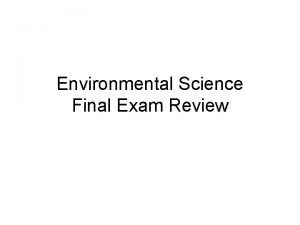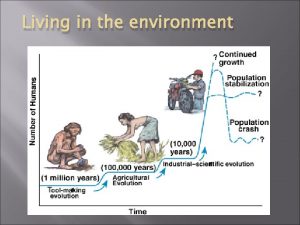ENVIRONMENTAL HEALTH Environmental health science is the study


- Slides: 2

ENVIRONMENTAL HEALTH Environmental health science is the study of biological, chemical or physical agents in the environment and their effects on human health and ecological systems. Environmental health scientists serve the general welfare by predicting which agents may cause adverse health effects and how these adverse effects occur, and safeguard the quality of our air, water, natural resources, food and shelter. DEGREE PROGRAMS • • • Ph. D. M. S. MPH RESEARCH STRENGTHS Environmental exposure effects on reproductive & child health Worker health and safety Water, food, and air quality Microbial interactions and antibiotic resistance WHY OUR PROGRAM? Exceptional research culture • Nationally- and internationally-recognized faculty • Connections to major public health organizations in Atlanta and beyond Contact: ehsgrad@uga. edu Environmental Health in Action Air, water, food safety Disease & pathogen ecology Environmental consulting Toxicology & Industrial hygiene Teaching & research

ABOUT ATHENS When it comes to college town vibes, things don’t get more authentic than Athens. Quality of life in the Classic City is one of the best in the nation, offering a low cost-of-living, a celebrated music and arts scene, great food, and much more. ABOUT MAIN CAMPUS The University of Georgia main campus covers 605 acres and includes 313 buildings. To its north, the campus adjoins historic downtown Athens, which features many boutiques, restaurants, entertainment, and service businesses. The Environmental Health Sciences Building on South Campus is the departmental home for EHS students.



